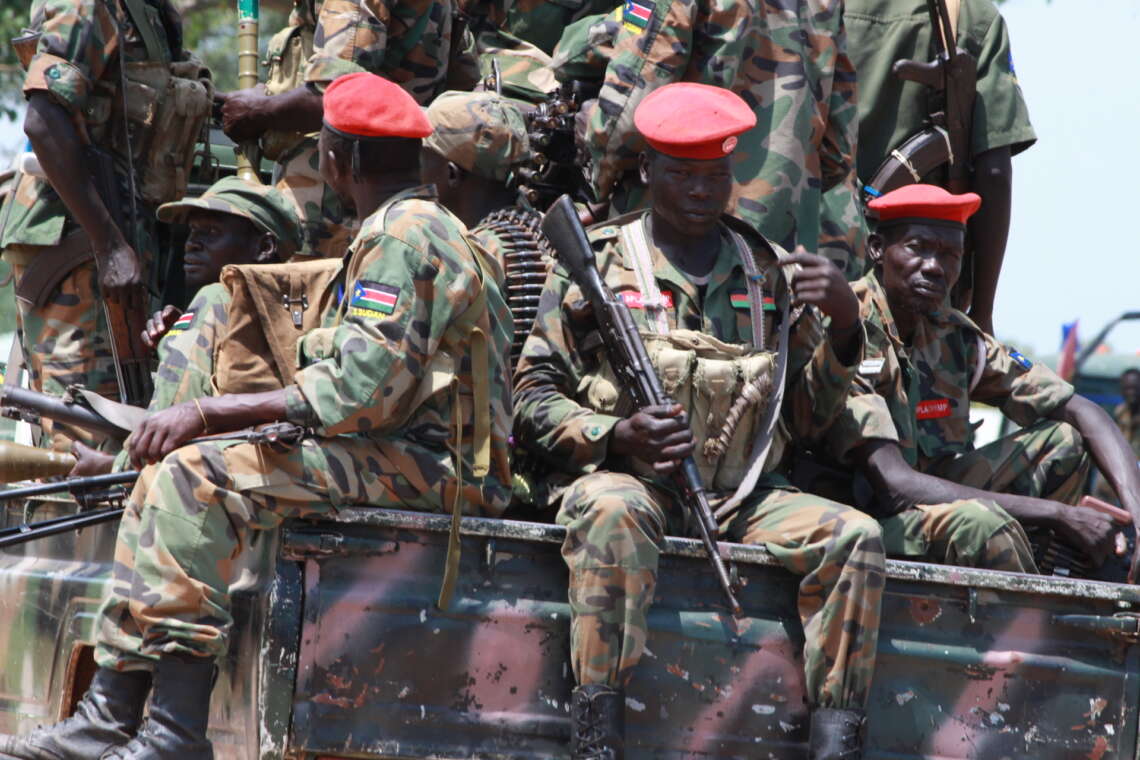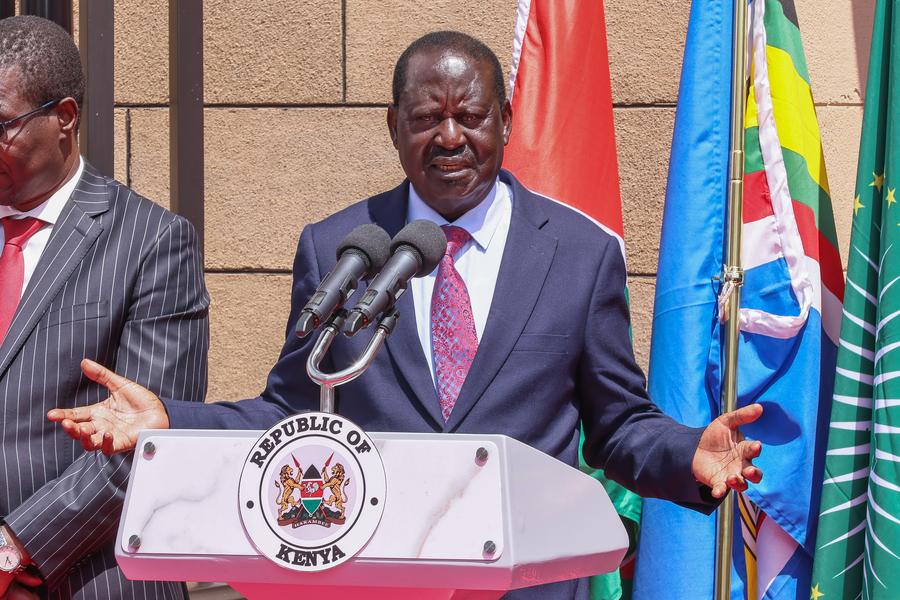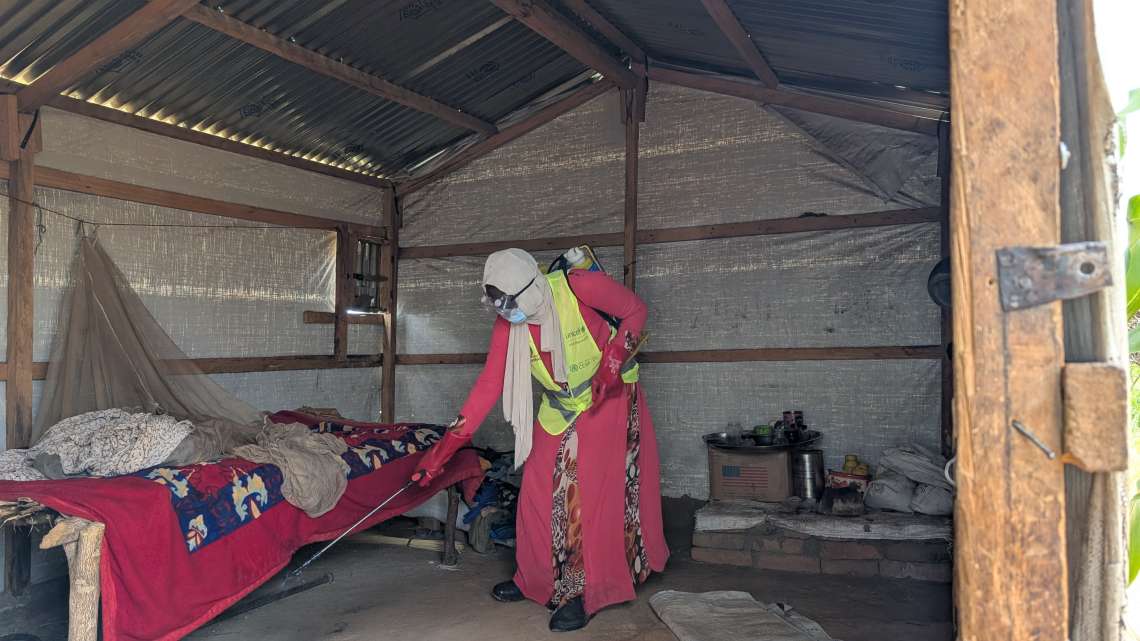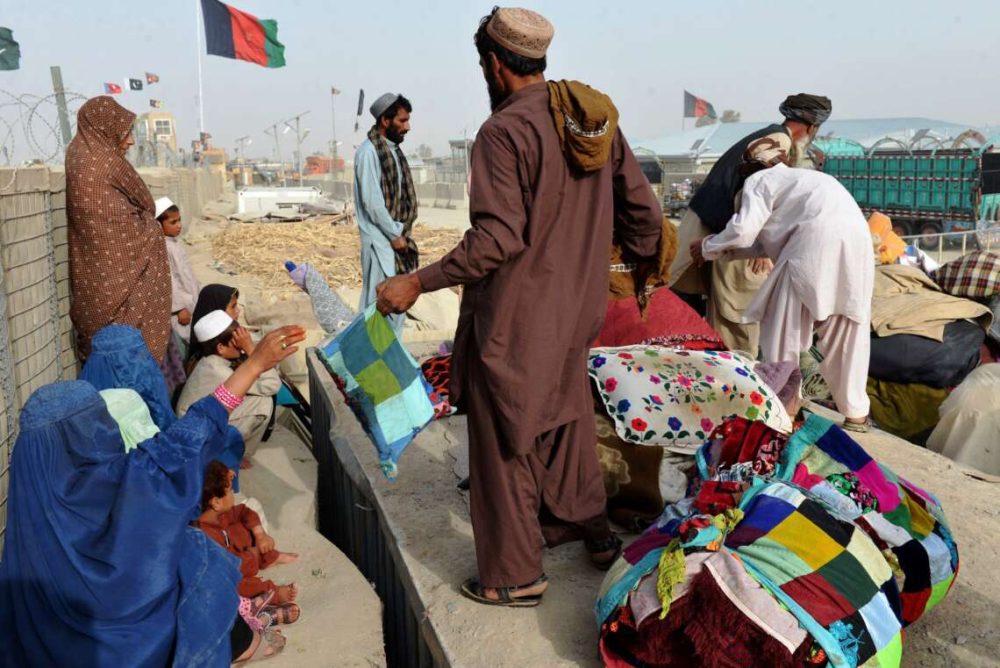Emergency Lawyers, a rights group tracking violence against civilians, said in a statement more than 200 people were killed in RSF attacks and hundreds of others were injured
Attacks by Sudan’s paramilitary Rapid Support Force have killed hundreds of civilians, including infants, in White Nile state, Sudanese officials and rights groups said Tuesday.
Sudan’s Foreign Ministry said in a statement that the paramilitary group targeted civilians in the past few days in villages in the al-Gitaina area after they were “overwhelmed by its devastating defeat” by the Sudanese army. The statement put the death toll at 433, while the Preliminary Committee of Sudan Doctors’ Trade Union put that figure at 300.
Emergency Lawyers, a rights group tracking violence against civilians, said in a statement Tuesday morning that more than 200 people, including women and children, were killed in RSF attacks and hundreds of others were injured over the past three days.
“The attacks included executions, kidnapping, forced disappearance, looting, and shooting those trying to escape,” the group said.
Minister of Culture and Information Khalid Ali Aleisir said on Facebook that recent attacks by the RSF in Al-Kadaris and Al-Khalwat villages in White Nile state are the latest “systematic violence against defenseless civilians.”
The Sudanese military said Saturday it had advanced in White Nile and “liberated more cities and villages,” cutting crucial supply routes to the RSF, a rival group it has battled for control of the country since April 2023.
The war in Sudan has killed more than 24,000 people and driven over 14 million people — about 30% of the population — from their homes, according to the United Nations. An estimated 3.2 million Sudanese have escaped to neighboring countries.
The U.N. on Tuesday said that throughout 2024, its human rights office documented more than 4,200 civilian killings, adding that the total number is likely much higher.
The U.N. Office for the Coordination of Humanitarian Affairs appealed on Monday for $6 billion for its 2025 humanitarian response in Sudan, to help about 21 million people in the country and the millions who fled the war abroad.
“This is a humanitarian crisis that is truly unprecedented in its scale and gravity,” said UN aid chief Tom Fletcher in a statement, “and it demands a response unprecedented in scale and intent.”
Meanwhile, Norway’s Minister of International Development Åsmund Aukrust denounced the escalation in violence and attacks against civilians.
“I am deeply concerned about the sharp increase in civilian deaths caused by the intensified conflict in Sudan. I am also shocked by reports of indiscriminate attacks against civilians and civilian infrastructure. Any such attacks must stop immediately,” Aukrust said in a statement published on the web portal for the Norwegian Government.
The developments on the ground have given the military the upper hand in the war as the paramilitary suffered multiple blows, including losing control of the city of Wad Medani, the capital of Gezira province, and other areas in the province. The Sudanese military also regained control of the country’s largest oil refinery.
The RSF appears to have lost control of the Greater Khartoum area and the cities of Omdurman and Khartoum Bahri.
The war has shown no end in sight despite international mediation attempts, including a U.S. assessment that the RSF and its proxies are committing genocide.
Sudanese army announces major advances on multiple battle fronts
The Sudanese Armed Forces (SAF) announced that its forces have made military advancement on several battlefronts against the paramilitary Rapid Support Forces (RSF).
“Units from the army’s armored corps have advanced in the Al-Sajana area, southwest of Khartoum,” the SAF said in a brief statement on its Facebook page.
“The Al-Hurriya Bridge has been secured after crushing and destroying the militia, forcibly expelling them from within civilian areas and neutralising many of their elements,” according to the statement, adding that the army units are advancing towards central Khartoum, a key area where the RSF has a strong presence.
In the western Sudan front, the SAF said that its warplanes had carried out successive airstrikes throughout Wednesday on RSF positions around El-Fasher, the capital of North Darfur State.
“The airstrikes caused human and material losses among the RSF, and dozens of their fighters fled due to the continued aerial bombardment on their positions,” the SAF’s 6th Infantry Division said in a statement.
The SAF has been engaged in intense battles in areas of western, central, and southern Khartoum, aiming to end the RSF’s control of strategic areas in the capital.
On January 25, the SAF announced the completion of the first phase of its military operation in Khartoum after linking forces from Omdurman and Khartoum North with units positioned near the Signal Corps, southern of Bahri city, north of Khartoum.
The army also managed to end the RSF’s siege of the army’s main headquarters, which had lasted for nearly 21 months.
Additionally, the SAF is fighting in the East Nile area, east of Khartoum, where it declared recently that it had lifted the siege on a major camp in the Al-Aylafun area. The army has, as well, controlled areas such as Um Dawanban and Alosaylat and other locations in the East Nile neighbourhood.
On February 17, the army announced that it had taken full control of the Kafouri area in Bahri city, the last stronghold of the RSF in the city.
Sudan has been gripped by a devastating conflict between the SAF and the RSF since mid-April 2023, which claimed at least 29,683 lives, according to the Armed Conflict Location and Event Data, a crisis monitoring group cited by the United Nations. The conflict has also displaced over 15 million people, either inside or outside Sudan, according to estimates by the International Organisation for Migration.
ALSO READ: Fresh Tensions Grip Indo-Pacific














